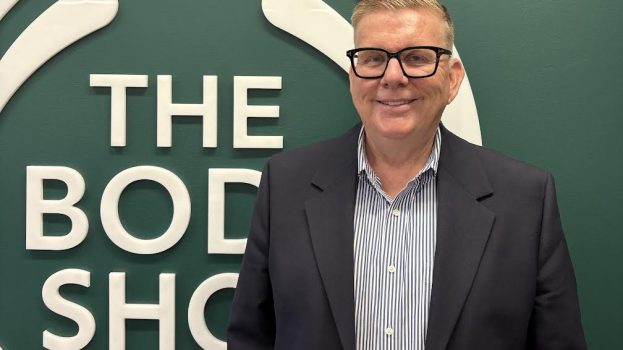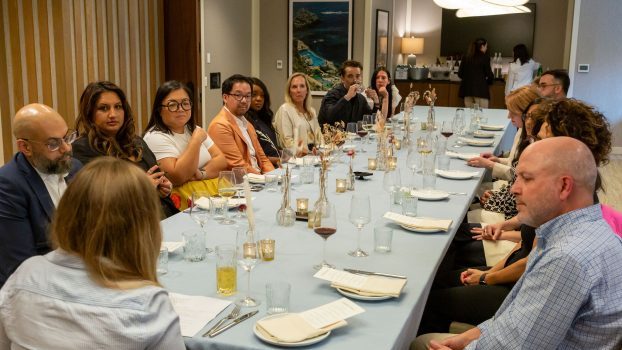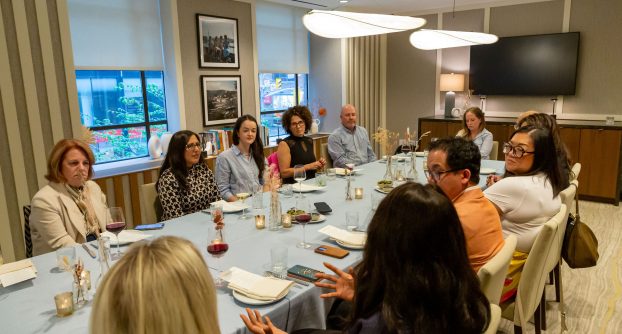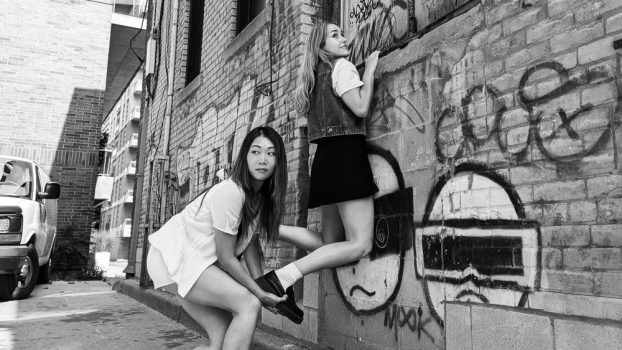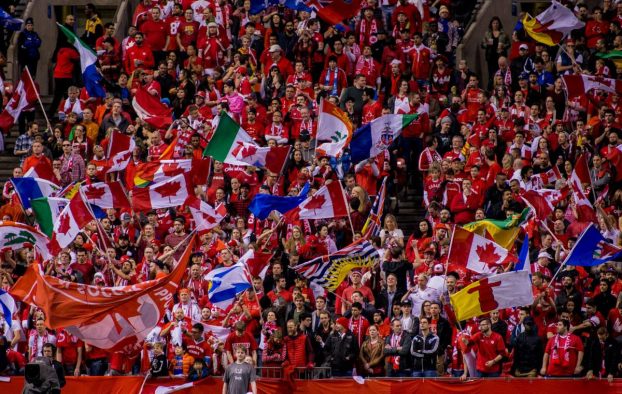You’re reading a story from Strategy C-Suite, a weekly briefing on how Canada’s brand leaders are responding to market challenges and acting on new opportunities. Sign-up here to receive the latest stories.
By Will Novosedlik
Lately, a whole new hybrid has entered the product fray. Alcohol and beer brands are teaming up with soft drink companies to create a sub-category of hard seltzers. And it all started with White Claw.
Launched in 2016 by Anthony von Mandl, owner of wine and spirits purveyor Mark Anthony Group, White Claw now owns 54% of the U.S. hard seltzer market. It’s a great Canadian success story. The #2 player in the market, at a distant 15% market share, is Boston Beer Company’s Truly Hard Seltzer. Von Mandl, also the creator of the wildly successful Mike’s Hard Lemonade, is clearly master of the “hard” universe.
White Claw and Truly Hard Seltzer both launched in the same year. Both owe their success to the demand among younger drinkers for a healthier alternative to beer and spirits. With alcohol-by-volume (ABV) ranging from 1% to 8%, products in this category are gluten-free and low-cal, most coming in at around 100 calories per serving.
Since then the category has absolutely exploded. According to research group Grandview Research, between 2018 and 2019 alone, the U.S. market grew from $700 million to $2.8 billion, a 400% increase. The global market was valued at US$5.6 billion in 2020. Global CAGR is expected to be 31.4% between now and 2028.
White Claw’s runaway success can partly be attributed to its astute avoidance of a gender-based target. Its package design and its marketing appeals to both men and women, while its competitors have tended to focus on female consumers.
White Claw also had the advantage of not being a beer company. Its nearest competitor, Truly Hard Seltzer, comes from a brewer, Boston Beer, which also makes full-flavoured Sam Adams. Boston’s CEO Dave Burwick has shared that being steeped in beer culture made it a challenge for the company to invest as quickly and as heavily in a non-beer product, fearing it might cannibalize its cash cow.
But that fear is gone now.
The exploding market has been enough to convince the brewer that it is onto a good thing. Boston Beer Company, building on its success with Truly, is now teaming up with Pepsi to launch a spiked version of Mountain Dew.

The success of the category has also convinced giants like Coca Cola to join in. As the owner of cult Mexican mineral water Topo Chico, Coca Cola teamed up with Molson Coors to launch Topo Chico Hard Seltzer in Mexico and Brazil. The product later launched in the U.S. and will be coming to Canada this year.
After its success with Topo Chico, Coca Cola said it’s partnering with Molson Coors to launch a line of full-flavour alcohol beverages inspired by its chilled juice brand, Simply. It will launch this summer as Simply Spiked Lemonade. Coca Cola will also be teaming up with Constellation Brands to launch a line of spirits-based canned cocktails under its Fresca brand called Fresca Mixed.
So what is going on here?
We asked Bob Russell, co-founder and CCO of craft brewer Collective Arts Brewing and he suspects that “because [beverage brands like Coca Cola and PepsiCo] have well-known brands that were introduced to consumers when they were kids, they now want to capture more value from them as people age into alcoholic beverages and out of sugary sodas.”
“As well, I think a lot of this activity is a marriage of convenience.” he adds. “Coke and Pepsi have big well-known beverage brand names, while Constellation, Molson Coors and Boston Beer have the alcohol brand names and the route to market. Why establish a new brand when one exists?”
Russell points out that, as the hard seltzer market exploded, everybody jumped in, including Collective Arts – although his company exited after 12 months. “Price-wise, it’s a race to the bottom. Big brands like Boston Beer’s Truly, White Claw, ABI, and Coors, are all fighting for real estate and have the deep pockets to do it. The category is looking a lot like the old cooler category these days.”

Peter Rodriguez, CEO of Brand Igniter, a marketing consultancy, wonders if these marriages of convenience are examples of a solution looking for a problem: “Are these ideas the genuine result of consumer-centric thinking, or inward-looking planning? They sound like they might be responses to the question ‘What can we do to get in on this?’ as opposed to ‘What do people want?'”
Speaking of consumers, in an interview with Yahoo! Finance, David Burwick noted that “the worlds of beer, spirits, wine, and even non-alcoholic beverages are all starting to converge as consumers seek new drinking experiences.”
Whether that will sustain the hard seltzer category’s projections remains to be seen, but as Gen Zers begin to take the stage with their concerns about health and rejection of Boomer values, we’re seeing an emergent category of non-alcoholic beverages based on botanicals, nootropics, adaptogens and cannabis, with brands like Kin Euphorics and Curious Elixirs.
According to Forrester research predictions for 2022, consumers are looking for brands that make them instantly happy, relaxed and provide an escape from the world we’re in right now. Non-alcoholic brands like the aforementioned Kin and Curious are not only healthier but can make you happier due to their dopamine-releasing ingredients. And who doesn’t want a hit of happiness after 2-plus years of anxiety, uncertainty and disruption?


